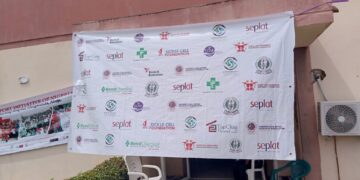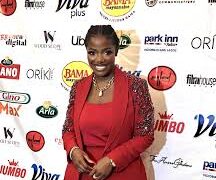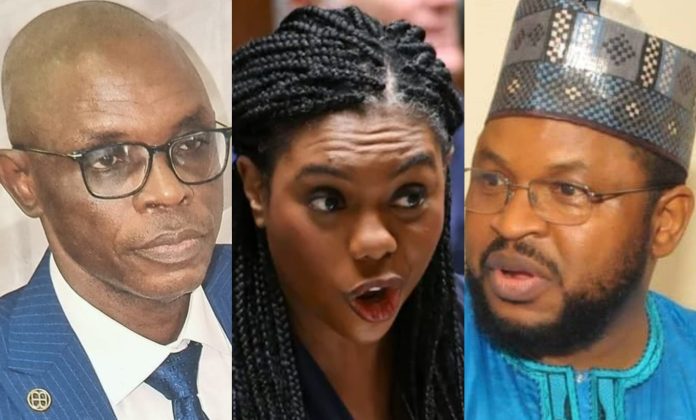By Yushau A. Shuaib
Let me start by acknowledging that storytellers increasingly seek to replace historians in shaping narratives. While anyone can become a storyteller, not everyone can be a historian. Storytelling involves crafting real or fictional narratives designed to entertain, educate, or inspire, often without strict adherence to factual accuracy. History, by contrast, is a meticulous record of past events, rooted in evidence and striving for objectivity and understanding. While storytelling prioritises creativity and emotional resonance, history demands scholarly rigor and factual analysis. Stories may incorporate history, but not all stories are historical.
History remains history—even in today’s climate, where Western and Eastern media often compromise journalistic ethics, favouring partisanship over accuracy and truth. This is evident in their coverage of the Russia-Ukraine conflict, where some outlets prioritise one-sided narratives, forsaking fairness and balance. Once respected for their integrity, many international media platforms now align themselves with the interests of patrons and sponsors, abandoning independence and impartiality.
This brings me to a recent article by award-winning columnist Lasisi Olagunju of the Nigerian Tribune titled “Fulani, Hausa, and Yoruba Truths.” In his piece, Olagunju explores Nigerian history, ethnicity, and identity complexities. While he challenges northern scholars’ narratives about the origins of the term ‘Yoruba’, his focus heavily skews toward Yoruba history, leaving the other two ethnic groups mentioned in his title—Fulani and Hausa—largely unexamined.
The article appears to be a reaction to an announcement by Minister of Education Tunji Alausa about reintroducing history as a subject in Nigerian primary and secondary schools. In his characteristic fashion, Olagunju highlights the contradictions in the accounts of three “historians” on Yoruba history, including comments by Kemi Badenoch, a Yoruba woman and a leader of the Conservative Party in the United Kingdom.
Badenoch controversially stated, “Being Yoruba is my true identity, and I refuse to be lumped with northern people of Nigeria, who were our ethnic enemies, all in the name of being called a Nigerian.”
This statement provoked a satirical response from Nigerian-American professor Farooq Kperogi, who argued that the Yoruba ethnic group owes its name—and much of its history and language—to northern Nigeria. Kperogi cites Songhai scholar Ahmad Baba, who, in his 1613 essay “Al-kashf wa-l-bayān li-aṣnāfmajlūb al-Sūdān,” first referenced the Yoruba as “Yariba.”
Olagunju’s article counters Kperogi’s claims, particularly the argument that the name “Yoruba” originated from Northern Nigeria’s Baatonu (Bariba) people. He draws on Yoruba historians to offer alternative explanations for the term’s origin, but his rebuttal lacks consistent reliance on verifiable sources.
For instance, he cited the response of Moyo Okediji, a Nigerian-American art history professor at the University of Texas at Austin, who publicly commended Badenoch for distancing herself from northern Nigeria due to concerns about terrorism in the region.
However, rather than citing credible sources, Okediji offered his own interpretation of the origin of the name “Yoruba,” claiming that his (own) grandmother had told him it is a shortened form of “A yọ orù bá wọn dáná ọmọ tuntun.” He suggested it is a panegyric phrase referring to both Ọ̀ṣun and Ọya, particularly Ọ̀ṣun. Unfortunately, he did not provide the year of his grandmother’s birth to lend credibility to his assertion. While colourful, the professor’s interpretation is unsubstantiated and anecdotal, lacking the academic rigor necessary for historical discourse.
Olagunju also speculates on the term “Yoruba,” suggesting it “may have existed long before the Bariba and the Yoruba had cause to meet.” Yet, like Okediji’s claims, this assertion lacks substantial evidence or authority. Some references cited by Olagunju include Richard Smith’s “The Alaafin in Exile: A Study of the Igboho Period in Oyo History,” published in The Journal of African History, March 1965, and Professor J.A. Atanda’s “The Historian and The Problem of Origins of Peoples in Nigerian Society,” published in December 1980. According to Olagunju, Atanda writes that “Sultan Bello’s account of the origin of the Yoruba people drew inspiration from an old Arabic text, ‘Azhar al-Ruba fi Akhbar Bilad Yoruba,’ written by Dan Masani, a noted Katsina scholar who lived in the seventeenth century and died in 1667.” These references highlight the involvement of non-Yoruba scholars, predominantly from the north or Arabian backgrounds. Therefore, the argument by the writer could not effectively challenge the central premise of Kperogi’s argument or provide conclusive evidence for his claims.
Olagunju also mentions Samuel Johnson in his work, “The History of the Yorubas,” as “one of the most famous figures in Yoruba history.” Still, he did not provide the publication date, which may be deliberate. Samuel Johnson (1846-1901), an Anglican minister and historian, wrote a seminal history of the Yoruba people. Although the publisher lost his manuscript, it was reconstructed from his notes by his brother after his death. First published in 1921, this foundational work remains a standard reference for Yoruba history despite some inaccuracies acknowledged by scholars.
Olagunju appears primarily concerned with countering Kperogi’s claim about the influence of the Bariba in Yoruba land. He cites Professor Banji Akintoye, who claimed in “A History of the Yoruba People” (published in 2010) that “most of the greatest warriors in Yoruba history were produced by the Oyo Empire.” Olagunju mentions one such warrior, Iba Magaji, who served Obalokun and Ajagbo as Basorun and played a key role in early campaigns that conquered parts of Nupe and Bariba countries. This raises the question: is “Magaji” a Yoruba or Hausa name? Yet, this rhetorical flourish does little to resolve the broader debate.
Does history hold significance when tribal and ethnic sentiments distort narratives, overshadowing fact and truth? How can we cite the personal impressions and perceptions of politicians and historians who demonstrate apparent bias towards specific ethnic groups? Educated individuals must refer to reputable resources that substantiate their claims.
Reliance on reliable and unbiased sources is paramount if history is to be taught in Nigerian schools. Documented evidence and peer-reviewed publications should serve as essential reference materials.
While Olagunju’s article sheds light on Nigerian history and identity complexities, I disagree with him on teaching compromised narratives to appease ethnic loyalties. This trend is becoming increasingly prevalent among contemporary historians in politics, academia, and the media, especially among Nigerians. I believe history should remain true to its essence—not a collection of convenient stories but a dedicated pursuit of truth.
_Yushau A. Shuaib is the author of “Strictly Personal: Writings for the Media”_ www.YAShuaib.com, yashuaib@yashuaib.com















